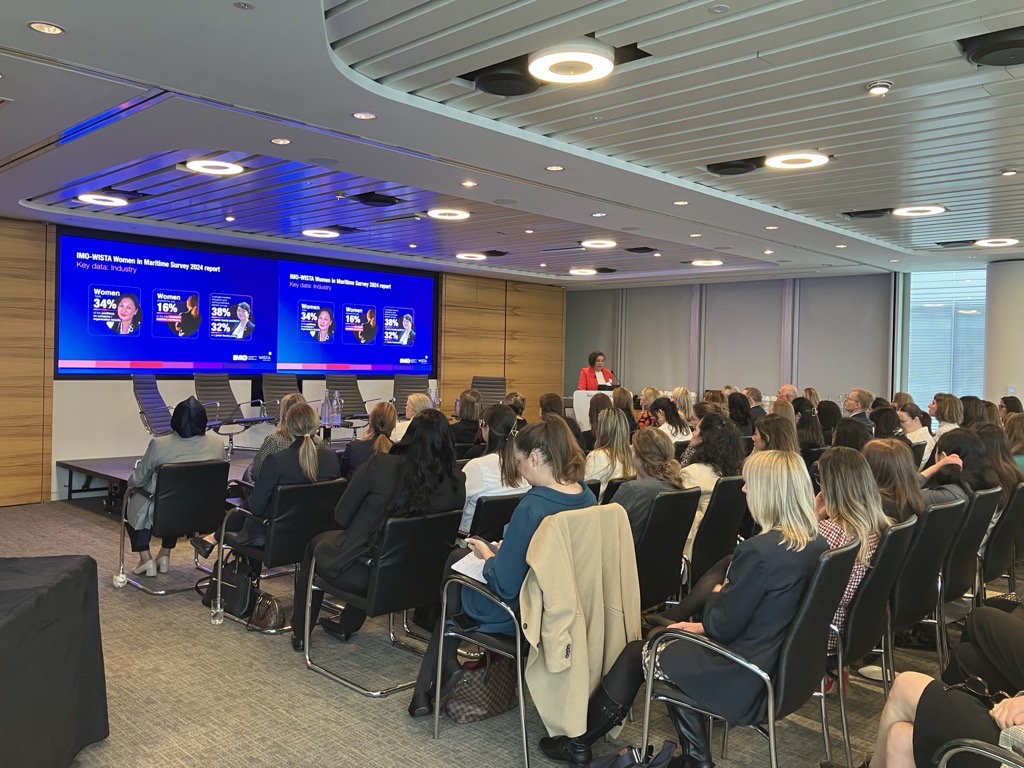LISW 2025 insights from Women in Maritime: Charting new horizons
This year’s London International Shipping Week (LISW25) centres on the theme ‘London: Managing the winds of change in global shipping’. While progress for women in maritime may be gradual, one might even call it a light breeze, ongoing efforts are steadily advancing gender parity.
The Norton Rose Fulbright Women in Maritime leadership breakfast (one of a wide-ranging series of events hosted over the course of the week) provided a thought-provoking discussion on the state of gender diversity in the sector. Panellists from WISTA International, financial institutions and ship owners, discussed the lessons learned so far in tackling gender diversity issues and the current steps being taken to try and combat on-going challenges.
Women in Maritime Survey Results 2024
Now in its fifth year, the Women in Maritime Survey provides real-time data on gender diversity in the maritime industry and guidance for areas where progress is lagging. While not a like-for-like comparison with the 2021 survey, the 2024 data indicates successful industry-wide effort to improve gender diversity over the past three years, reflected in higher participation: 608 companies took part, up from 513 in 2021.
Despite this increased participation, the survey results were not universally positive. Of most concern is the fact that women only account for 1% of seafarers employed by surveyed organisations. Additionally, in some areas like ship owning, bunkering and legal services, there has been a notable decline in gender representation.
However, there are still some glimmers of hope, with genuine change occurring in newer areas like ESG and decarbonisation services, banks and financial institutions and maritime technology. This positive trend also continues at board level with 34% of board members in the surveyed organisations being women.
The 2024 results paint a complex picture of an industry making genuine progress yet still facing significant and persistent challenges. Key areas highlighted for improvement include gender stereotyping, workplace safety concerns, weak or non-existent family-focused policies and the ongoing gender pay gap. To start tackling these challenges, the report encouraged increased reporting transparency and actively tracking workforce trends to help ensure accountability, a crucial driver for meaningful change.
Company level policies
Within the maritime industry, different enterprises have found unique ways to tackle gender imbalance.
Financial institutions
Our panellists from financial institutions noted the various policies they have implemented in relation to diversity initiatives. The panel agreed that a range of programs should be introduced so women can fully benefit from schemes tailored to their individual needs, and that the wide-ranging problems in this area should be tackled from multiple angles.
Introducing sponsorship programmes where more junior women are paired up with women in senior positions to provide career planning guidance and more general advice has enabled an increase in female retention rates and proven to be five times more effective than mentorship.
Publishing equal remuneration reports has also allowed female employees to see how much they are remunerated in comparison to others in the company; this has clearly highlighted the ongoing gender pay gap within each company.
More generally, there has been a shift in parental leave policies within these enterprises. The panel discussion focused on the benefits of encouraging male employees to take extended paternity leave, helping to destigmatise gendered care responsibilities.
Another notable way to ensure gender representation is to simply start hiring more women. In one example discussed, a financial institution had introduced a requirement that during all interviews, there was always one man and one woman on the panel. Other examples of changes included instigating gender-neutral job listings.
Ship owning industries
The tide is also turning for ship owners. Here, mentorship remains a key tool for empowering women as it opens up honest dialogue with other women about the challenges faced within the industry and provides a strong knowledge base for any future problems that may arise during a woman’s career.
Given the global footprint of some ship owning companies, the panel recognised the disparity in the rate of change, noting that companies in jurisdictions implementing policies supported by government initiatives resulted in a much quicker pace of change.
Looking ahead
A uniting factor for the panellists was the stark difference between the numbers of junior women entering the industry compared to those taking up senior roles. Simply put, action needs to be taken, and fast, to provide gender equality within the industry.
Looking ahead, the focus needs to be on retaining talent at the senior end. Career strategy plans targeting senior women in the industry and specifically focusing on their career progression at this higher level should be prioritised and introduced. Pertinently, women should not have to choose between professional progression or family life.
Workplaces with strong family planning initiatives, identifiable senior role models and flexible collegiate cultures supportive of those with caring duties, remind women that having both is a very attainable possibility.
With thanks to London trainee, Melissa Diaz, for co-authoring this article.
Find out more about our Women in Maritime network:
Read more shipping insights:



/Passle/6182994d49b2340a4c485aab/SearchServiceImages/2026-01-06-14-35-34-434-695d1db6d11cd484ab248072.jpg)
/Passle/6182994d49b2340a4c485aab/SearchServiceImages/2026-02-25-17-49-47-452-699f363bf745f3b7a066b551.jpg)
/Passle/6182994d49b2340a4c485aab/SearchServiceImages/2026-02-24-15-15-40-715-699dc09c58651e09b88e49fb.jpg)
/Passle/6182994d49b2340a4c485aab/MediaLibrary/Images/2024-07-02-10-23-02-880-6683d506cf6e5aef44618d77.jpg)